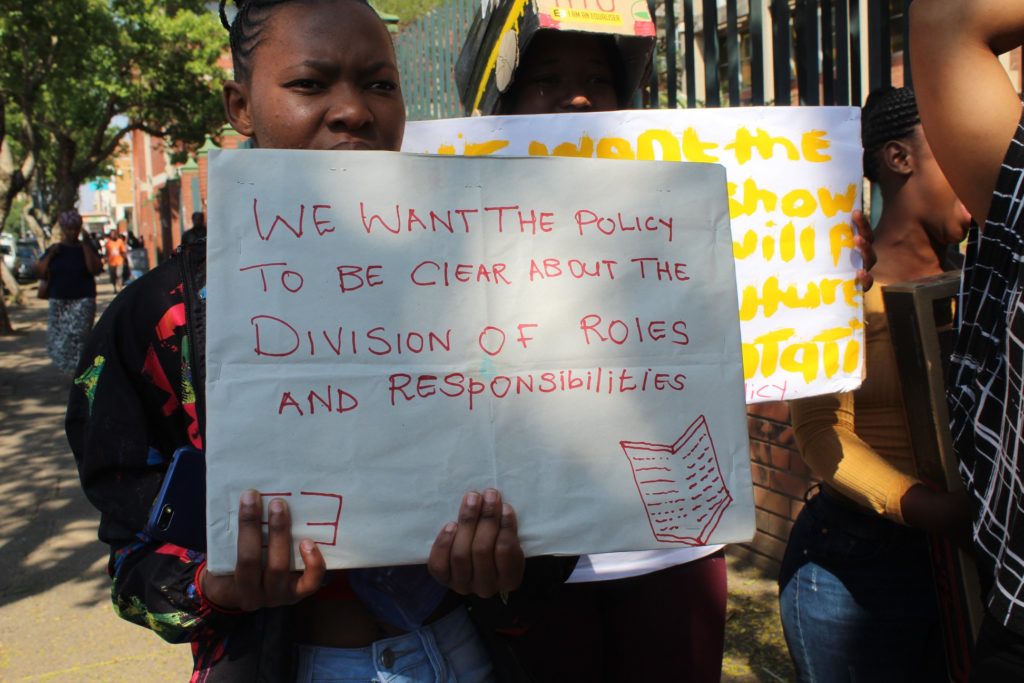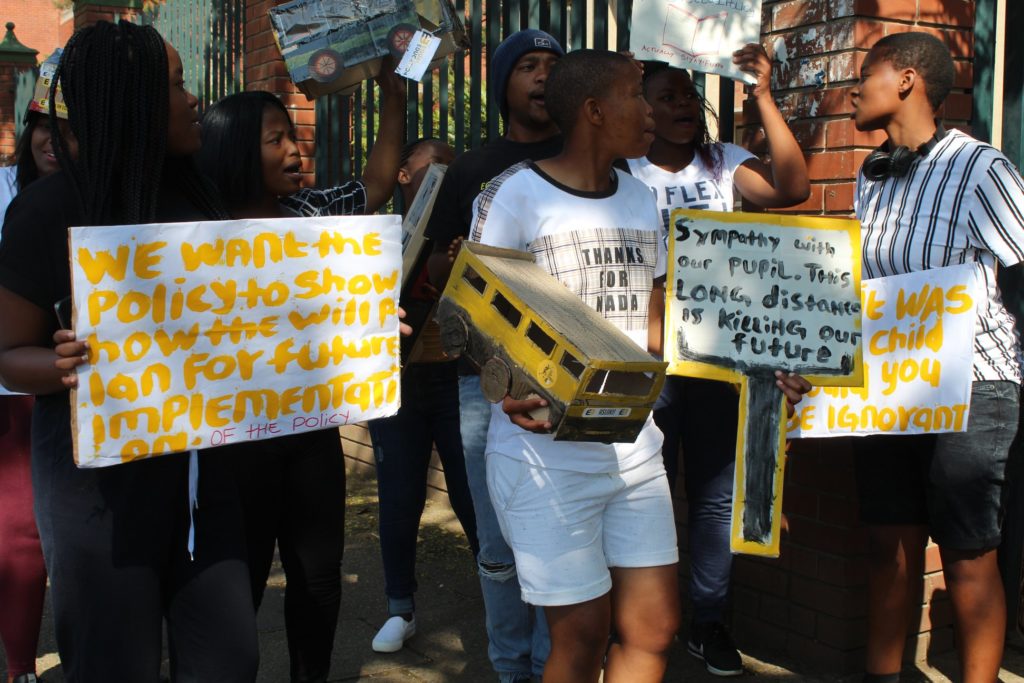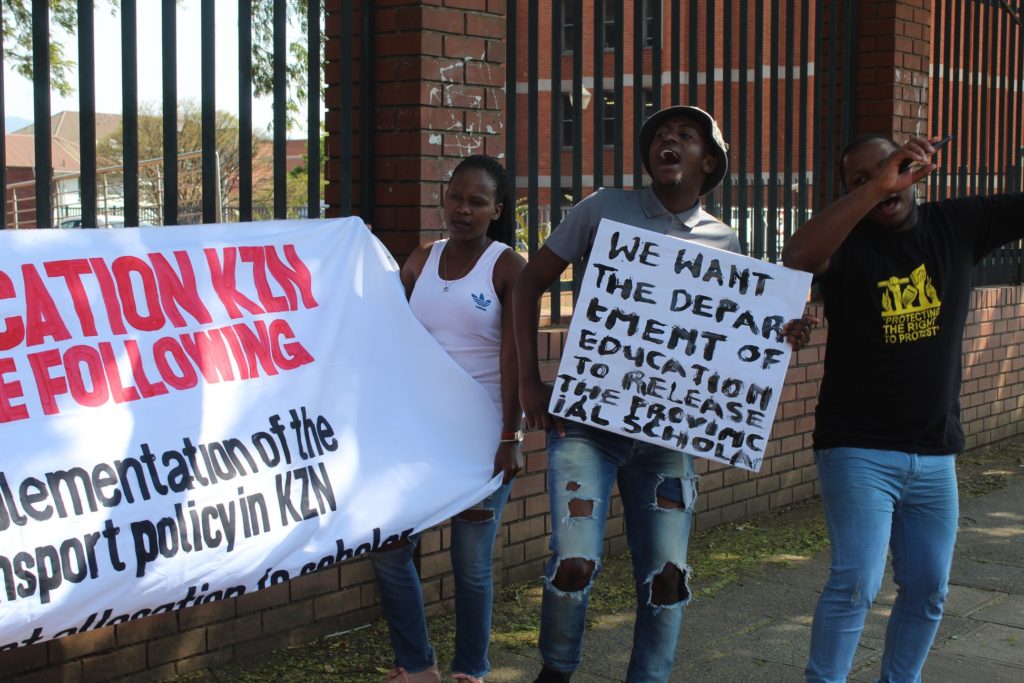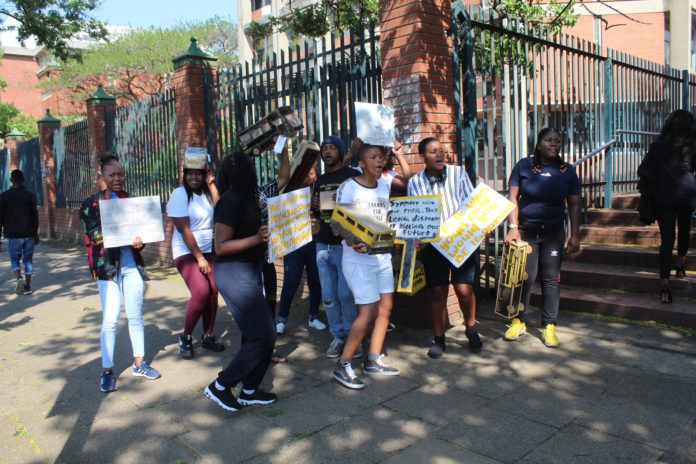Around 483 633 learners in KwaZulu Natal (KZN) walk more than half an hour in one direction to school each day, according to the 2016 Statistics South Africa General Household Survey. Many learners across the country walk long distances in sunshine and rain, crossing rivers and hiking through the mountains to get to school. But the problem is the worst in KZN.
These learners are high on education advocacy organisation Equal Education’s (EE) agenda. In the rural village of Nquthu, in northern KZN, the youth highlighted their problems getting to school to EE back in 2015. Since then, EE has repeatedly been urging the KZN Department of Education (DoE) and Department of Transport (DoT), through engagement, protest and court action, to alleviate the burden of these learners by implementing an effective scholar transport policy. Post-school EE youth organisers spoke about how lack of transport impacted their schooling as learners.

Palisa Motloung (21) Nquthu, KZN
I was once an Equaliser myself and I once walked to school every morning and afternoon. I can tell how exhausting that is through my experience. As youngsters, we would walk to school every day, traveling distances, facing terrors when it’s rainy and stormy or too cold or hot. We were never sure what’s going to happen on those routes. Nquthu is in a rural area. Learners have to travel through mountains with huge stones so it’s highly possible that these stones could fall on them and they can get hurt easily.
My walk to school was about 30 minutes. I remember this one time when I was walking with my friend, and then we passed a bush and there were men there talking. You couldn’t tell if they were talking on this side or that side of the fence because it was dark. It was very scary, we literally had to run. Imagine we had to run with all our books and everything. It was quite an experience and I don’t wish any child should go through that.
Getting this transport policy for them means that they will be safe, the pass percentage in KZN will be much better. Learners won’t have to walk to school and get to school tired. A lot of positive things will come from this, that’s why I think that children should be provided with scholar transport.

Sanele Zulu (22), Nquthu, KZN
We live in a rural area and there are children who are walking long distances to go to school. When they go to school, they get raped, there is a lot of crime. There are rivers that they have to cross and they get wet. When it is raining, it is risky to walk when there is lightning, and there is the possibility of drowning when the river floods.
I didn’t have to walk to school, I was lucky. I stayed close by to the school so I didn’t even know this was an issue until I was part of Equal Education. That’s when I really saw the problem and got to interact with it. It’s important for people like me who didn’t walk to school to care because most of the time when learners wake up very early, they get to school very hungry and tired. They can’t concentrate and perform badly. This affects the school percentage, the pass rate of the school also gets affected because of the long kilometers that children have to walk to school.

Nomfundo Ngobese (25), Nquthu, KZN
It hurts when we see children from Nquthu walking long distances. I wished that KZN MEC for Education Mr Kwazi Mshengu was here today. I wanted to see him and ask him about his personal experience because I have no doubt that he comes from the rural areas. He knows what the challenges in the rural areas are but he just grew up and he got out and he is denying it.
Our walk to school was 35km. We had to do house calls, duties, homework and it was worse because we didn’t even have electricity. Electricity only came now. Even in winters when we had to go to school, it was dark. We didn’t feel safe, we had to wake up past 4 so that at past 5 we could go to school. We didn’t even realise the difficulties our smaller siblings were facing. It’s a thing that we just got used to. Even if we found snakes on our way to school, we didn’t realise it was dangerous to see them.
I didn’t even know walking long distances to school was a wrong thing to do until EE came and opened our minds. Even our parents didn’t know it was wrong, they thought that because in the olden days they walked amalong distances, so we must get used to it. But when EE came to our rural village, something went off in our eyes and we saw things in a different way.









